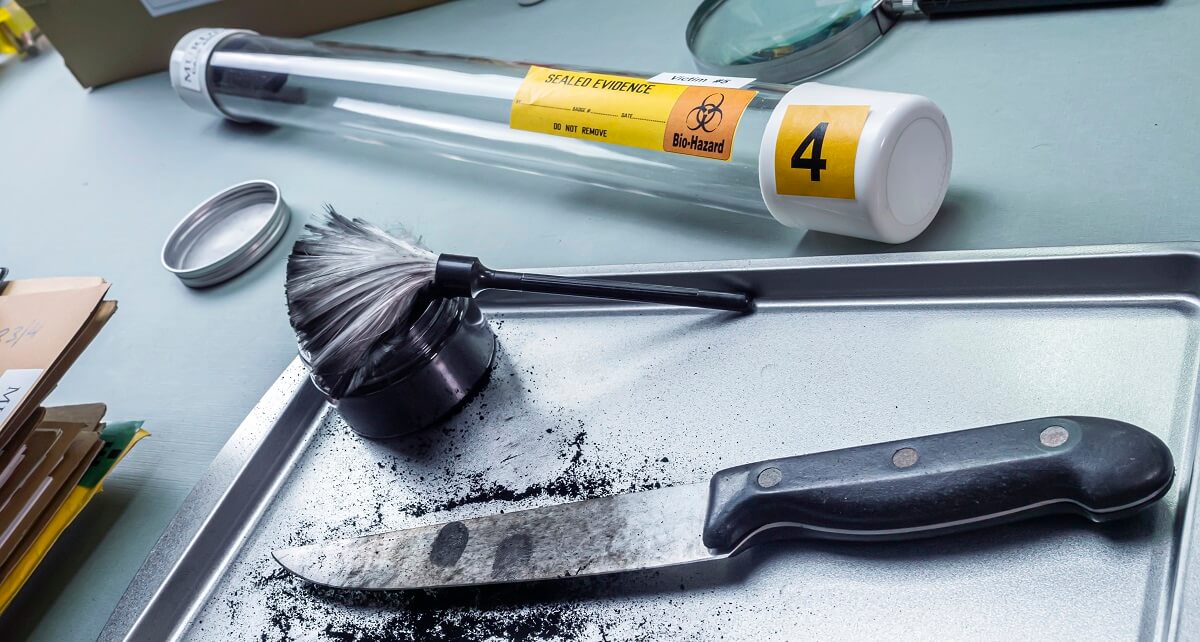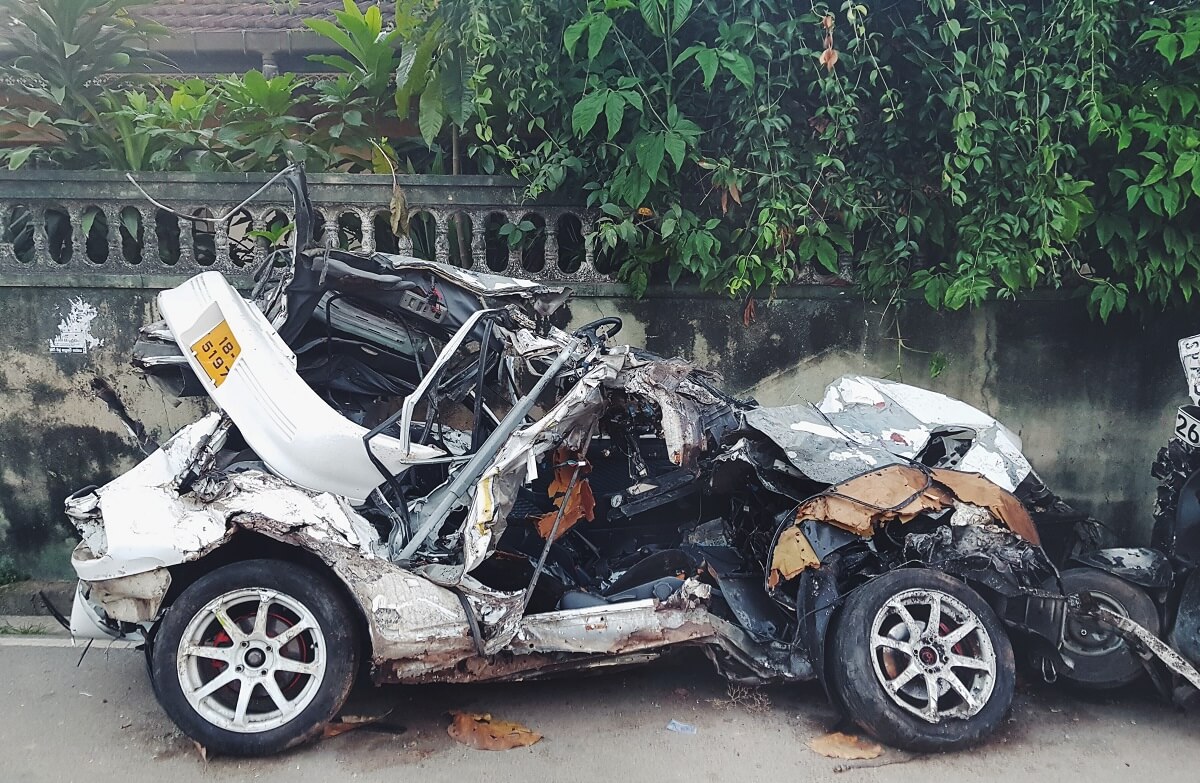
Homicide Defense Attorney in Louisiana - David E. Stanley, APLC
Table of Contents
ToggleWith a homicide rate of 15.8 per 100,000 people in 2021, Louisiana continued to hold the title of the state with the highest homicide rate. It raises the question of how the Louisiana judicial system handles the homicide emergency. How are murders classified and prosecuted? In Louisiana, a state that favors the death penalty, homicide charges are the most serious ones that may be brought against someone. A person suspected of murder can believe there is no chance of success and that the situation will be unwinnable regardless of the defense’s strength. Although a murder conviction may result in decades in jail or perhaps death, a skilled and competent murder defense lawyer in Louisiana can greatly disprove the claims against a client. It’s necessary to fight and fight fiercely rather than give up hope.
You may not completely comprehend the distinction between first- and second-degree murder charges if you’re facing them in Louisiana. At what point does a crime go from a second to a first-degree felony? What are the differences between each kind of penalty? These are crucial issues to discuss with your criminal defense attorney, who will examine the prosecution’s evidence against you to determine if these accusations are justified.
David E. Stanley of the APLC has represented thousands in criminal trials and has secured an acquittal for many of them. David E. Stanley of the APLC has been involved in cases in Baton Rouge. He has 35 years of experience working with lawyers in and around the judicial system. David E. Stanley, APLC, can assist you if you or your family member has been accused of committing an offense. In addition, David Stanley is available to represent you.
The Louisiana Law's Five Types of Homicide
The killing of a person by the deed, solicitation, or culpable omission of another is homicide. The criminal definitions of murder have constantly been changed in Louisiana’s homicide legislation to offer justice for rising and changing violent crimes.
First-degree murder, second-degree murder, manslaughter, negligent homicide, and vehicular homicide are today’s five classifications of homicide in Louisiana. Each homicide is unique, with various definitions and legal options. Here is a comprehensive manual.

The Five Homicide Grades in Louisiana
First-Degree Homicide
The revised statute, under which the petitioner was charged, convicted, and sentenced, provides in part that first-degree murder is the killing of a person with the intent to kill or cause great bodily harm while also committing or attempting to commit aggravated kidnapping, aggravated rape, or armed robbery.
- When the murderer is paid or has been promised something in exchange for the death
- When the perpetrator harms or intends to kill a victim who is younger than 12 years old or is over 65
- When the criminal distributes, sells, or exchanges controlled hazardous drugs or seek to do so
- When the murder or other injury is intended to prevent or influence testimony or as retaliation for earlier testimony, the victims were engaged in a previous court proceeding.
The crime of causing bodily injury or having the intent to kill a peace officer, a fireman, or a civilian employee of the Louisiana State Police is also included in the definition of first-degree murder. In addition, the first-degree murder legislation states that if the criminal attempts or commits additional crimes, such as aggravated abduction and arson, aggravated rape, first-degree robbery, or acts of terrorism, it will also be regarded as first-degree murder.
Those with first-degree murder face the death penalty or life imprisonment with hard labor as their only option for retribution. The benefits of parole, probation, or sentence suspension will not apply to the offender. In line with jury findings and Code of Criminal Procedure Article 782, the district attorney may request the death sentence in a first-degree murder case. However, if the district attorney decides against seeking the death penalty, the perpetrator will be sentenced to life in prison.
Second-Degree Murder
Second-degree murder is a type of homicide of a person in which the perpetrator murdered the victim or seriously injured them to do so.
The criminal may also have committed additional offenses like rape or illegally distributed a restricted hazardous drug, much as in a first-degree murder case, according to La. R.S. 14:30.1, the criminal may also be penalized if the victim’s use of the restricted drug directly results in their death.
Second-degree murderers may get a life sentence with hard labor without the possibility of release, probation, or sentence reduction due to their crime. However, second-degree homicides do not result in the death penalty, unlike first-degree murder convictions.

Manslaughter
Manslaughter is defined by La. R.S. 14:31 as a kind of homicide if the victim is aroused into a sudden violent rage and the victim has the intent to kill. A typical person would need to be sufficiently provoked to lose their calm in this situation. Additionally, a manslaughter offender is someone who kills a person while committing felonies or other intentional misdemeanors or while putting up resistance to legal arrests in a way that is not inherently dangerous. If a person is charged with manslaughter, the conviction carries a 40-year maximum sentence of hard labor in prison. Convictions for manslaughter do not carry the death penalty.
Negligent Homicide Deliberate Murder
The term “negligent homicide” refers to the unlawfully negligent killing of another person, according to La. In R.S. 14:32, a murder can be deemed a negligent homicide if there have been violations of laws and ordinances, which can be used as “presumptive evidence” of negligence. For example, a healthcare professional may commit a negligent murder by showing criminal negligence by disregarding the safety of the person under their care, such as by omitting fatal signs.
Negligent homicide offenders may be sentenced to up to five years and fined $5,000 as punishment. If the victim was older than ten years old, the sentence might not have required hard labor; however, if the victim had been younger than ten, the sentence would have required hard labor without the benefit of probation or a suspended sentence for two to five years.
Automobile Homicide

The term “vehicular homicide” describes any killing that takes place in a car, boat, plane, or other motorized conveyance, according to La. R.S. 14:32.1(B), the offender is responsible if they are driving or managing a vehicle that causes another person to be killed or suffer grievous bodily damage.
Even without the intention to kill or seriously hurt the victim, there is still a responsibility for vehicular murder. The sobriety of the defendant or their use of illicit drugs or alcohol is included as a factor that influences the allegation of vehicular homicide. Vehicular homicide has a maximum sentence of 30 years in jail, a minimum of five years, and a mandatory three-year minimum sentence. The vehicular homicide penalties that are due vary from $2,000 to $15,000.
Legal Assistance for Those Detained for a Homicide
Are you trying to find a lawyer to defend you in a murder case? Support is available from the criminal defense attorneys at David E. Stanley, APLC. We are prepared to provide legal advice and support to anyone in the Baton Rouge, Louisiana, region accused of a crime. Additionally, we have the expertise you need to defend people accused of a crime at the Law Office of David E. Stanley, APLC.
Frequently Asked Questions:
Does Louisiana Have a Felony Murder Law?
Yes, Louisiana has a felony murder law. According to the Louisiana Criminal Code, even if there was no malicious intent, a killing occurs “when the criminal is involved in the perpetration or attempted perpetration” of certain grave offenses.
Is Louisiana a Capital Murder State?
Like most states, Louisiana still imposes the death penalty (capital punishment) as a punishment for some of the most egregious offenses. In addition to the federal government and the U.S. military, 32 states still applied the death sentence as of 2013.
How are People Executed in Louisiana?
Your Committed Criminal Defense Attorney

The first consultation to discuss your case is provided without cost by the Law Office of David E. Stanley, APLC. We’ll accommodate your schedule. Our web content is offered only for informative reasons; it is not meant to be legal advice and shouldn’t be interpreted as such. Please seek legal counsel about any particular circumstance under Louisiana law and the appropriate state or local legislation that may influence your legal rights.
Looking for a Murder Criminal Defense Attorney in Louisiana? David Stanley, APLC is a seasoned and trusted federal criminal defense attorney who can help and guide you through your legal battle. We serve the following areas:
Criminal Defense Attorney Ascension Parish, LA
Criminal Defense Attorney Baker, LA
Criminal Defense Attorney Baton Rouge, LA
Criminal Defense Attorney Central City, LA
Criminal Defense Attorney East Baton Rouge Parish, LA
Criminal Defense Attorney East Feliciana Parish, LA
Criminal Defense Attorney Greenwell Springs, LA
Criminal Defense Attorney Iberville Parish, LA
Criminal Defense Attorney Lafayette Parish, LA
Criminal Defense Attorney Livingston Parish, LA
Criminal Defense Attorney Pointe Coupee Parish, LA
Criminal Defense Attorney Pride, LA
Criminal Defense Attorney St. Tammany Parish, LA
Criminal Defense Attorney Tangipahoa Parish, LA
Criminal Defense Attorney West Baton Rouge, LA
Criminal Defense Attorney West Feliciana Parish, LA
Criminal Defense Attorney Zachary, LA
Looking for Reputable Legal Counsel?
Contact David E. Stanley, APLC
Now for an Appointment
Call 225-926-0200
David E. Stanley, APLC
1055 Laurel St #2, Baton Rouge, LA 70802, United States
225-926-0200


